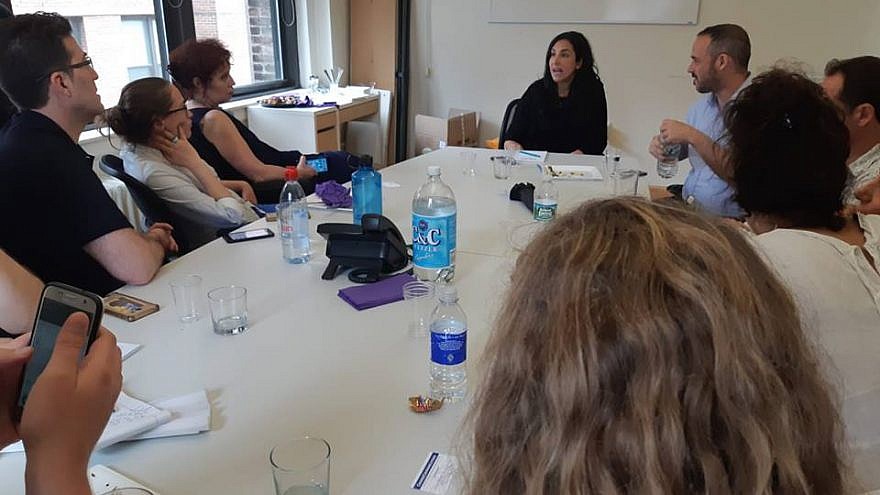Operating four secular yeshivahs in Israel, BINA: The Jewish Movement for Social Change is now opening its first branch in the United States.
From Feb. 13 through May, the organization will offer its 90-minute egalitarian and pluralistic classes at the Oshman Family Jewish Community Center (OFJCC) in Palo Alto, Calif., ranging from learning fundamentally about the history of the Jewish people to engaging with the five books of the Torah.
“Our approach to Jewish learning is inspired by Israeli secular Jewish text study. By secular, we mean an approach, not a description of belief,” reads the program information. “The approach of ‘secular text study’ is based on the idea that Jewish texts can be meaningful to anyone interested in Jewish tradition, no matter one’s own practice or belief.”
“We strive to teach Jewish text without a feeling of commanded-ness, obligation or normativity,” continues the description. “Secular Jewish text study engages with these texts with an interest in how they speak to the evolution of Jewish life, as well as with the aim to maintain these texts’ relevance to today’s Jewish communities.”
The idea behind BINA (the Hebrew word for “wisdom”) is tied to three pillars: textual learning, social change and community. In Israel, it is a pluralistic option from the dominant Orthodox system.
“We see ourselves as a service provider, as an organization that wants to give the secular people a Jewish home that they feel is part of their values,” BINA deputy director Nir Braudo told The Jewish News of Northern California. “Most of the organizations [in Israel] are Orthodox, while the majority of the population is secular. This is where the young Israelis are.”
Zoe Jick, associate director of Jewish content at the OFJCC, told the outlet: “My dream has always been to open a secular yeshivah in America. I got the skills to do that by working at BINA, but all of [its] programs were in Hebrew. I said to Nir over a bowl of hummus that there are Americans that would want this experience, but their Hebrew is not strong enough to do it [in Israel].”
“We don’t see the text as obligating. We see it as inspirational,” she added. “We don’t learn the laws of Shabbat hoping you’ll go home and do them. We’re hoping you’ll understand the tradition.”


























